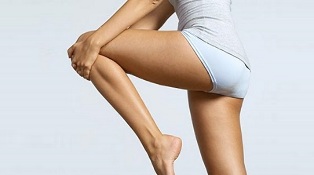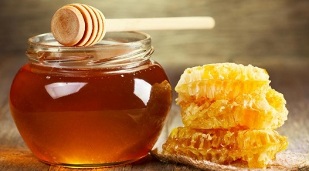It is not difficult to treat first degree osteoarthritis of the knee joint if the symptoms are detected early and consult a doctor. It is a destructive disease that affects cartilage, causing it to collapse. It has 4 stages of development, the first of which is the initial one. As the disease progresses, it leads to musculoskeletal drug disorders and complete cessation of joint mobility.
Causes of inflammation
The following factors are responsible for the onset and development of knee osteoarthritis:
- metabolic disorders in the body, excess joint fluid in the knee;
- excess weight, which puts pressure on the extremities and causes cartilage wear;
- past infectious diseases of the joints, inflammation, arthritis;
- bruises, dislocations, fractures, complications after surgery;
- genetic predisposition.
Osteoarthritis occurs in adulthood (after age 45). However, there are many cases in which young people under the age of 30 were exposed to the disease. The reasons for the "rejuvenation" of the disease can be excessive physical activity, overexertion, injuries. The lack of vitamins and minerals in the diet also contributes to the development of degenerative changes in the knee joint.
Symptoms - how to tell?

Osteoarthritis of the knee joint of the first degree has its own characteristics:
- mild pain during activity, prolonged walking and running, pain cessation at rest;
- poor joint mobility, difficulty moving;
- knee contraction during flexion and extension.
Waking up in the morning is usually accompanied by slight swelling and stiffness of the joint, symptoms that disappear during the day. At night, the pain may intensify and the appearance of edema will add to the symptoms. Sore pain also occurs due to changes in the weather and sudden pressure changes. Meteosensitivity is a common but optional symptom of knee OA. The initial stage of the disease is characterized by narrowing of the joint spaces, softening of the cartilaginous tissue of the knee.
Complications
Ignoring symptoms and lack of treatment causes the disease to transition from the first degree to the second. In the acute phase, impaired circulation turns swelling into inflammation, complicating further therapy. The nature of intensifying pain also changes: pain sensations turn into tingling sensations.
Diagnosis
Based on the test results, the presence of an inflammatory process can be determined.
Prescribed by the treating physician and includes three stages:
- knee exam;
- derivation for analysis;
- X-ray transmission.
It is quite difficult to recognize the disease in the early stages. It has no pronounced symptoms that are often ignored.
A consultation with a physician can confirm or deny a preliminary diagnosis. Gonoarthrosis cannot be completely cured, it is only possible to slow down the development of the disease and reduce the discomfort that hinders a full life.
Treatment of first degree osteoarthritis
Massage procedures
In the early stages of the disease, the manual method is an effective and useful solution in the fight against knee osteoarthritis. Kneading the affected area improves blood circulation and eliminates edema. Completing the full course can minimize the manifestations of symptoms and strengthen the cartilage tissue. Relatives of the patient or himself can massage the knee joint. However, it is recommended to consult a specialist to obtain a better result.
Medications
Destructive leg changes cause a lot of inconvenience and interfere with a full life. To relieve painful sensations and eliminate inflammation, the doctor prescribes chondroprotectors that prevent the cartilage from being destroyed and gradually restore its integrity.
Taking non-steroidal medications will relieve pain and swelling well, but these medications are not suitable for treatment. Ointments and gels improve the nutrition and metabolism of the joints, making them convenient and effective to use.
Exercise therapy for first degree osteoarthritis of the knee joint
It is recommended not to load the joint without consulting a specialist. The physical therapist will select the optimal exercises based on the symptoms and degree of the disease. Exercise therapy is used in the initial stages and in the absence of pain. The acute phase sometimes requires the use of a knee brace, the bandage fixes the joint in a passive position, limiting mobility and relieving stress on the cartilage.
Traditional medicine
The use of hot compresses is not recommended for inflammatory processes, since excess heat in the knee causes purulent complications.

The recipe for home remedies is diverse and includes anesthetic infusions and anti-inflammatory rubs.
Cabbage, birch and burdock leaves relieve swelling, and honey massage nourishes the affected area with nutrients.
A compress made of apple cider vinegar diluted with turpentine should be applied to the knee and wrapped overnight, additionally wrapping the affected area with a warm cloth.
Prevention methods
You can prevent the development of knee osteoarthritis by observing some rules:
- do not overcool the joints;
- control your weight, don't overeat;
- dose of physical activity;
- participate in gymnastic exercises;
- treat injuries in a timely manner.
It is recommended to change the diet by eliminating foods with excess cholesterol, flour products, sweets from the menu. Reduce your salt intake. Avoiding injury is also important in preventing knee disease. At the first signs of an inflammatory process in the cartilage tissues, you should immediately consult a doctor in order to start treating the disease in a timely manner.





































